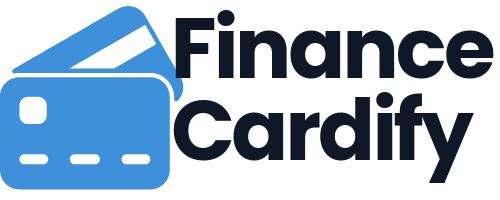Navigating the world of personal finance and investment can be daunting without the right guidance. Books remain one of the most valuable resources for understanding financial principles and strategies that can significantly enhance your investing acumen. This article lists ten essential personal finance books that every investor should read to improve their financial literacy and investment strategies. Each book is chosen for its ability to clarify complex concepts and provide practical advice in the realm of personal finance and investing.
1. “The Intelligent Investor” by Benjamin Graham
Often referred to as the bible of investing, Benjamin Graham’s guide stresses the importance of value investing—a method to purchase stocks at less than their intrinsic value. Graham’s philosophy of “Mr. Market” is particularly famous for encapsulating the emotional rollercoaster of stock market investing.
Keywords: value investing, stock market basics, Benjamin Graham
2. “Rich Dad Poor Dad” by Robert Kiyosaki
This book offers a comparative look at the differing financial advices and attitudes towards money and investing from two father figures. Kiyosaki’s insights on investing in assets over liabilities have shaped the personal finance strategies of millions.
Keywords: financial education, assets vs. liabilities, Robert Kiyosaki
3. “Thinking, Fast and Slow” by Daniel Kahneman
Nobel laureate Daniel Kahneman explores the psychological forces that affect our decision-making processes, particularly under risk and uncertainty, which are commonplace in investing. This book is crucial for understanding behavioral finance.
Keywords: decision-making, behavioral finance, psychology of investing
4. “The Millionaire Next Door” by Thomas J. Stanley and William D. Danko
This book reveals that most millionaires live below their means and choose financial independence over displaying high social status. It is a powerful examination of how discipline in financial planning leads to wealth accumulation.
Keywords: wealth building, financial independence, frugal living
5. “Your Money or Your Life” by Vicki Robin and Joe Dominguez
This book is a step-by-step guide to transforming your relationship with money and achieving financial independence. It emphasizes making intelligent choices that align spending with personal values, which is crucial for long-term financial planning.
Keywords: financial independence, smart spending, life planning
6. “A Random Walk Down Wall Street” by Burton Malkiel
Malkiel’s book is a compelling argument for the benefits of long-term investment strategies over trying to beat the market. It’s ideal for understanding stock market fundamentals and the importance of building a diversified investment portfolio.
Keywords: stock market investing, diversified portfolios, long-term investing
7. “Common Stocks and Uncommon Profits” by Philip Fisher
Fisher’s principles on ‘scuttlebutt’, or doing one’s homework extensively before investing, and his ‘fifteen points to look for in a common stock’ are seminal in the field of growth investing.
Keywords: growth investing, evaluating stocks, investment research
8. “The Little Book of Common Sense Investing” by John C. Bogle
John Bogle, founder of The Vanguard Group, advocates for the low-cost index fund investing strategy. His insights help demystify the complexities of the markets and demonstrate why consistent investments in low-fee index funds can outperform more active strategies.
Keywords: index funds, passive investing, cost-effective investing
9. “The Richest Man in Babylon” by George S. Clason
Through parables set in ancient Babylon, Clason offers timeless financial advice on saving, financial planning, and wealth building. This classic is especially recommended for its straightforward advice on the importance of saving a portion of one’s income.
Keywords: saving strategies, financial wisdom, wealth accumulation
10. “The Behavior Gap: Simple Ways to Stop Doing Dumb Things with Money” by Carl Richards
Richards uses simple sketches and clear, concise language to discuss the common mistakes investors make and how emotions affect their financial decisions. This book is particularly useful for understanding the personal mindset and behaviors that impact financial success.
Keywords: financial behavior, investment mistakes, emotional investing
Frequently Asked Questions (FAQ)
What book should I start with if I’m new to investing?
A1: “The Intelligent Investor” by Benjamin Graham is a great starting point as it lays down fundamental principles of investing in an accessible manner. However, for those completely new to financial concepts, “Rich Dad Poor Dad” offers an easy introduction to thinking about assets and liabilities.
Are these books suitable for investors at all levels?
A2: Yes, these books offer valuable insights for both beginners and experienced investors. Each book covers different aspects of personal finance and investing, providing a well-rounded education that can benefit anyone regardless of their financial prowess.
How can reading these books improve my investing skills?
A3: These books can enhance your investing skills by providing diverse perspectives on wealth management, investment strategies, and financial decision-making. They help build a solid foundation of knowledge, encourage critical thinking about personal finances, and offer strategies to avoid common pitfalls.


